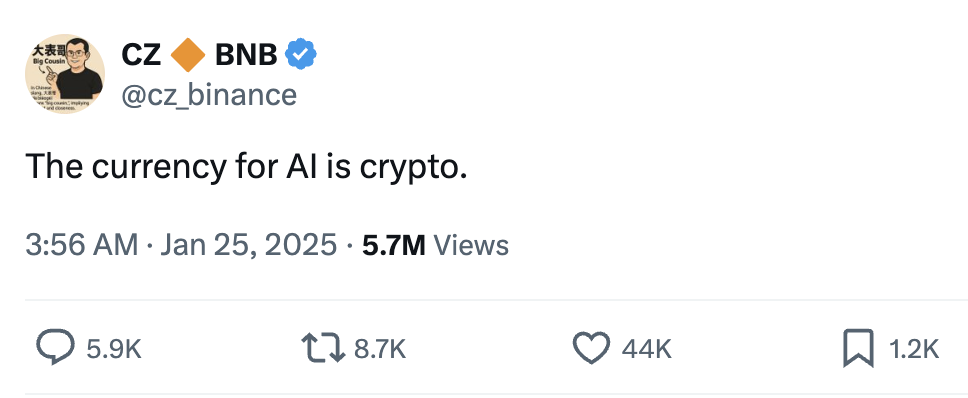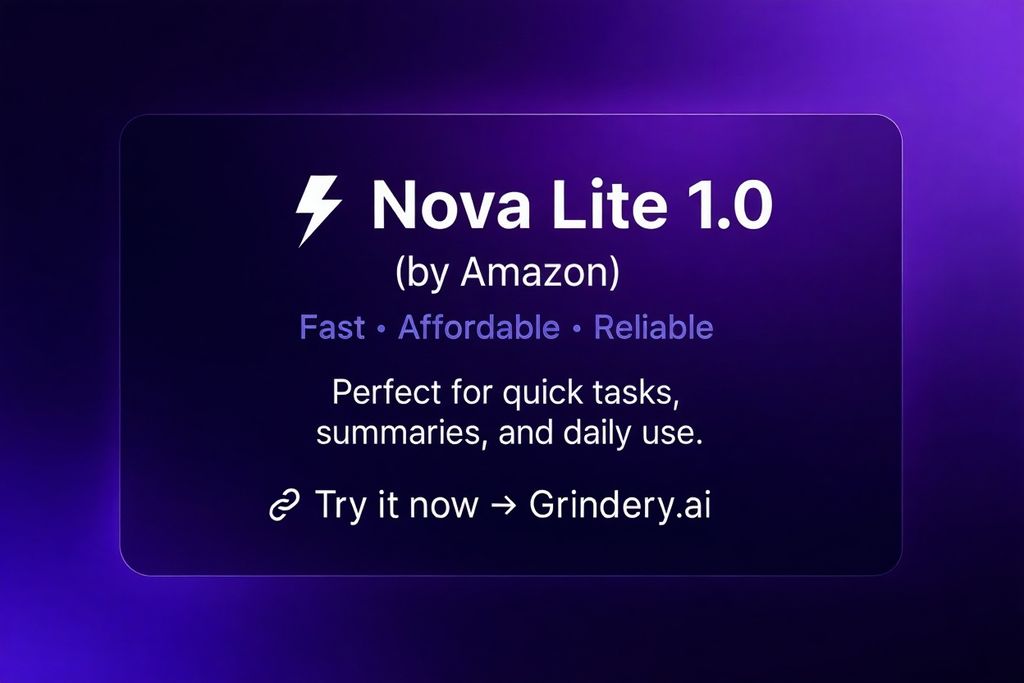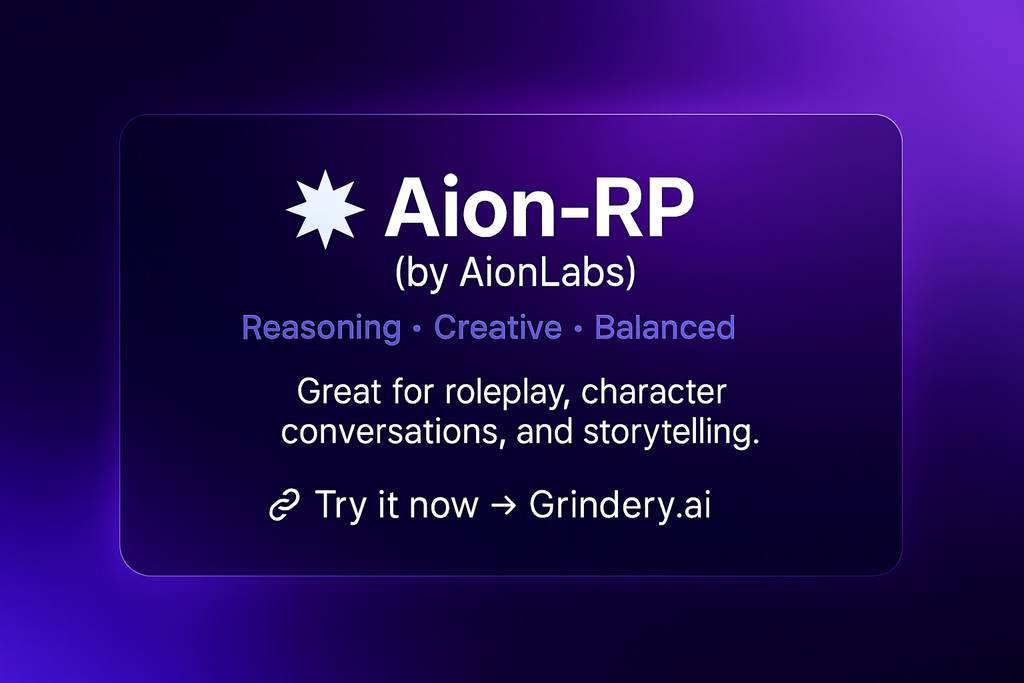The future of AI isn't just about better models—it's about who controls the economic layer that powers the entire ecosystem.

How We Got Here
We joined Binance Labs in 2022 with the promise to unify Web2 and Web3. In September 2023 we came up with a simple value prop: give Telegram users access to the EVM world, give EVM developers access to a massive new audience.
It worked. We hit 4 million users and scheduled our TGE for March 2025.
Then February happened. Telegram changed their terms of service, creating Apple-style walled gardens. Despite their narrative about being decentralized and open, it's all money when you put it on the table.
This destroyed our product-market fit and business model. We were too deep into the TGE to step back, so we went through with it. Token performance was bad.
Even without Telegram's controversial choice, we hit two other brutal realities. The wallet space is saturated—there are 450+ wallets on WalletConnect, and smart wallets are deep in the Valley of Disillusionment. Plus, crypto users move in swarms for airdrops, then disappear, leaving a a dry desert behind.
Not surprisingly, what we all learned from that again is what matters: business fundamentals. Make money, and you have a business. Don't, and you're just burning treasury. Crypto is becoming more like every other business.
For the better.
Crypto Will Be the Currency of AI
We had already experimented with AI before Telegram—it's what initially brought us to Telegram in the first place. We saw messaging clients becoming the interface for AI and realized they could integrate Web3 technology through account abstraction.
After three months of iteration and conversations with builders, I'm convinced we're about to see a fundamental shift in how AI applications work.
Many people say crypto will be the currency of AI—most notably CZ of Binance. But few have actually articulated why, how, and when. We believe we have the answers.
The economics of AI are broken. Publishers are fighting for their rights as AI companies scrape their content without compensation. Meanwhile, developers are stuck paying $20/month subscriptions for services they use once. Users can't discover or pay for micro-services efficiently.
The key is MCP (Model Context Protocol) and agents. Just like browsers accessing websites through HTTP brought the internet revolution in the 90s, AI assistants accessing tools and information sources through MCP is going to create the same exponential explosion.
Here's our thesis: crypto makes markets more efficient, especially in usage-based B2B markets. All AI inference and APIs have usage-based pricing as a major cost factor. Crypto is perfect for solving micropayments at scale.
A Smart Paywall API for AI Monetization
We’re building on a simple but powerful idea: instead of routing LLM traffic, we allow to monetize it — turning API calls into dynamic revenue streams.
- Beyond LLM Routing: Aventino connects to any AI API — including OpenRouter, OpenAI, Anthropic, or custom endpoints — and sits between assistants and inference services to enable monetization at the prompt level.
- Programmable Paywall Layer: By integrating our AI Paywall proxy, developers can start charging users immediately, with full control over when, how, and what to charge for — without changing their assistant logic.
You can literally swap your OpenAI or inference endpoint for ours — not just to reroute traffic, but to inject a smart, adaptive paywall between your assistant and the model.
Right now, we're focusing on smart wallets adding AI capabilities. We're working with XMTP and a major self-custodial wallet to figure out the exact integration models.
Major wallets are working on on-chain agents for power users, which is great, but they have monetization baked in already. What excites me more is bringing all the off-chain functionality to a massive audience.
How do you let millions of wallet users do token analysis from within their wallet for five cents? How do you let developers rapidly build this with no-code tools, launch it, deliver value, and actually make money?
That’s the role of a programmable AI Paywall—not just access control, but intelligent, real-time monetization infrastructure for AI-native applications.
The MCP Explosion
Here's why I think we're at an inflection point: MCP didn't exist six months ago. Now it's adopted by every major AI company from Microsoft to OpenAI. There are thousands of MCP services being built.
The adoption on the client side is accelerating. Claude desktop added MCP support, ChatGPT is adding it, and others are following. But this is creating exactly the problems you'd expect: How do you find connectors? Why do some work and others don't? Why do I need to pay $20/month to access one service?
Another telling indicator of this shifting to new models? Cloudflare just launched the ability for website owners to monetize with LLMs—micro charges for scraping your content.
Think about the implications: LLMs charge for usage, information sources are going to charge for usage through microtransactions, and all of this flows into AI assistants that currently charge users monthly subscriptions via credit card.
This entire thing is going to shake up, and it's happening very fast.
Multiple Shots at PMF
I'm not naive about the competition. Google and OpenAI and any other major tech company are thinking about the same problems. From a startup perspective, this is like diving into a market spilling over with sharks.
But our crypto and smart wallet experience gives us a shot.
Here's the reality: we've reduced our burn to the absolute minimum. We're working with a skeleton team and have a token subscription model that creates selling pressure on our token but allows us to keep iterating.
That means we have a handful shots at different product-market fit opportunities. We need to take those shots, see if we can hit something, reload, and try again.
Our bet is simple: if we can prove the market is ready (early but ready), that we have the right tool, and that we can execute—we can leverage that into new funding. This is impossible to conquer without resources, but we need to prove these three things first.
The First Shot
We're launching our AI Paywall API publicly next week. Developers will be able to literally drop it in front of their assistants or agents and start monetizing usage—by the prompt, by the session, or by the tool call.
I'm excited and terrified. It could be nothing—we shoot and nothing happens. Or we could hit something and take off. It's completely unpredictable.
But that's the opportunity. The cards are being shuffled right now. No one knows exactly how this plays out, which means there's room for a startup like ours to grab a piece of it.
The alternative is building wallet #451 in a saturated market. I'd rather snipe.
We're launching our public API next week. If you're building AI applications and want to start monetizing immediately, ping me. And if you know developers who might be interested, I'd appreciate you spreading the word. In a market this chaotic, getting the word out is everything.


